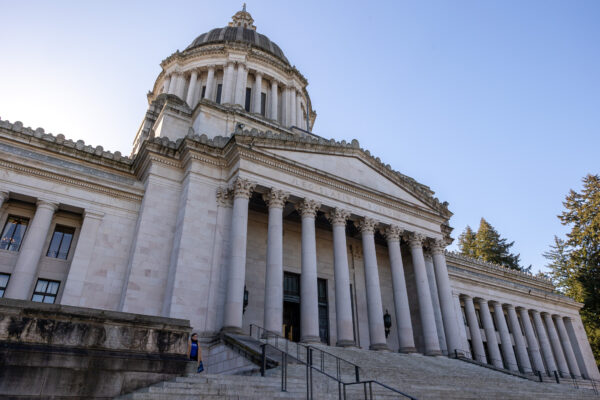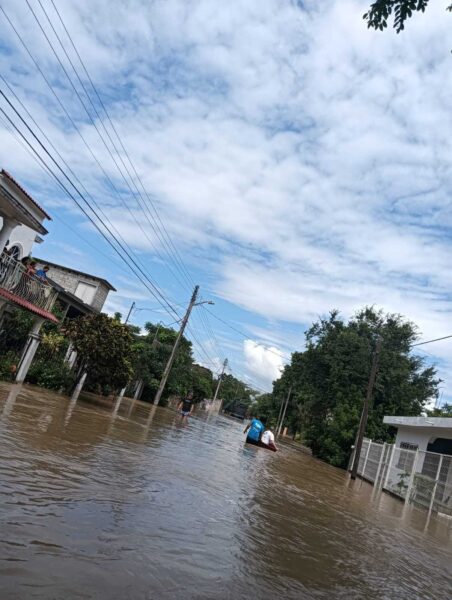Legislators of 2023 Session Make Historic Investments Using Climate Commitment Act Dollars to Reduce Emissions and Fund Environmental Justice, Pass Generational Changes to GMA; Environmental Progress Remains for Salmon, Recycling
Media Contact:
Zachary Pullin, Environmental Priorities Coalition 206-639-3760
Cliff Traisman, Environmental Priorities Coalition 206-369-2235
OLYMPIA, WA–Tonight, the 2023 Washington Legislative Session concludes, with legislators harnessing Washingtonians advocacy to achieve big wins for people and our environment with passage of transformative update to the State’s Growth Management Act, and allocation of nearly $1 billion Climate Commitment Act (CCA) dollars, the nation’s strongest polluter-pay law, to cut carbon pollution, and invest in local communities and carbon sequestration.
Every year, Washington State’s Environmental Priorities Coalition (EPC) brings together environmental groups from the state, is responsive to our state’s environmental and public health needs, and shows up fiercely to fight for climate, clean water and air, forests, salmon, environmental justice and our futures. The EPC remains hopeful about our state’s ability to meet climate goals given the historic funding from the Climate Commitment Act and passage of the GMA update, while remaining steadfast in our commitment to protecting salmon with more funding for critical projects and passing the WRAP Act.
“We can’t wait for future generations to solve today’s challenges because communities across Washington don’t have the luxury of waiting for the kind of bold environmental progress we need right now,” said Alyssa Macy, CEO, Washington Conservation Action (citizen of the Confederated Tribes of Warm Springs, Oregon). “With $1 billion dollars from the Climate Commitment Act, our state can now address the challenges of today and tomorrow. The use of these CCA funds to reduce pollution, improve our public health, and invest in vulnerable communities and Tribal Nations reflects more than a decade of work and we are thrilled to start seeing the results.”
Environmental Priorities Coalition Priorities:
Planning for a Climate Friendly Future – GMA Update: HB 1181 requires the largest and fastest-growing Washington counties and cities within them to reduce greenhouse gas emissions and vehicle miles traveled through land use planning. It requires all counties planning under the Growth Management Act (GMA) to plan for resilience and to address the impacts of climate change in land use plans.
“Futurewise has been a steward of the Growth Management Act for over 30 years and we’re thrilled to have partnered with our state climate leaders to update the GMA for the next generation,” says Alex Brennan, Executive Director for Futurewise. “HB 1181 is forward-thinking legislation that ensures that we’re designing our communities for a climate-resilient, affordable and equitable future.”
Investing in Climate Action – CCA Investments: The Climate Commitment Act (CCA), passed during the 2021 Washington legislative session, is the nation’s strongest polluter-pay law to cut carbon pollution, reduce emissions, and invest in the health of local communities.
“It is incredible to have seen Washington be a true leader in addressing the climate crisis over these last few years. This session the Legislature built on that leadership and put money towards cutting climate pollution faster, cleaning up our air, accelerating the clean energy economy, and directly investing in overburdened communities,” says Kelly Hall, Climate Solutions. “There is so much we can look forward to: more clean vehicles on the roads, less smog and dirty air in our homes and neighborhoods, and more thoughtfully planned clean energy projects across our beautiful state. The Legislature’s allocation of CCA dollars will demonstrate to all of us the direct benefits from our transformational climate and clean energy policies.”
Based on our analysis, legislators funded critical and meaningful programs to reduce pollution, increase climate resilience, and support communities across Washington. Namely:
- $83 million for state lands and forests carbon sequestration for a new way of forest management and to protect older forests from harvest
- Big investments in clean transportation to reduce pollution from larger vehicles and increase charging infrastructure:
- $120 million for a medium and heavy duty vehicle and charging program
- $6.3 million for a zero-emission drayage pilot at the NW Seaport Alliance
- Over $37 million for charging along priority transportation corridors
- New and increased investment for affordable, cleaner homes and buildings:
- $80 million to fund a heat pump program that prioritizes low- and moderate-income households,
- $40 million to fund home weatherization improvements to conserve energy and protect health.
- Large-scale investments in pollution reduction and climate action in overburdened communities and tribal nations:
- $23.8 million for air quality projects, grant programs and rulemaking
- $50 million for tribal adaptation grants
- $38.6 million for community-directed grants to overburdened communities
- $26.3 million for implementation of HEAL Act
Investing in Salmon Habitat – Salmon Funding in Budgets: Salmon runs continue to dwindle throughout the state – across the Columbia Basin, throughout southwest Washington, and around the Puget Sound region. The 2023 operating and capital budget package includes roughly 10-20 percent increased funding compared to previous biennial budgets for salmon recovery, including:
- More than $410 million on habitat protection and restoration programs including the Salmon Recovery Funding Board, Puget Sound Acquisition and Restoration, Brian Abbott Fish Passage Barrier Removal, and the Stormwater Financial Assistance Program.
- $50 million for riparian grant programs through the Recreation and Conservation Office and State Conservation Commission to focus on science-based restoration of areas adjacent to streams and rivers that must maintain cool and clean water for salmon to survive.
- Over $10 million to address cutting-edge issues like 6PPD and tire dust that is toxic to salmon, how to define and advance beyond No Net Loss to Net Ecological Gain of habitat, and how to support replaceable services currently provided by the Lower Snake River dams.
“People across our state value salmon and the habitats that support them. Legislators dedicated more money than ever toward salmon habitat protection and recovery. That means more on-the-ground work by local experts in every salmon region in the state that will help address the backlog of critical projects,” said Mindy Robert, Puget Sound & Salmon Program Director, Washington Conservation Action. “Even so, many key projects remain unfunded, ranging from Deschutes Estuary and Point No Point Estuary Restoration design to Hoko Ozette culvert replacements to acquisitions from willing landowners around Samish Bay and throughout the state. Our heart is in this work until every salmon has a fighting chance to survive.”
Washington Recycling And Packaging Act (The WRAP Act): The WRAP Act would establish several mechanisms to reduce excess packaging, improve recycling outcomes, including establishing a bottle deposit system, and a producer responsibility system for packaging, which puts the costs of recycling collection and processing back onto the companies that produce the packaging waste in the first place. The policy would expand recycling access to more than 360,000 households across the state.
“Washington’s local governments and ratepayers are frustrated with increased costs for recycling and yet our recycling rates are on a downward trend,” said Heather Trim, Executive Director for Zero Waste Washington and part of the Plastic-Free Washington Coalition. “We are looking to the legislature to pass the WRAP Act next year, because we can’t wait much longer for the manufacturers and brands to help be part of the solution in Washington so we have less waste, better designed packaging and improved recycling.”
The WRAP Act did not pass during the 2023 legislative session but instead a proviso was included in the budget that studies important WRAP Act components and potential benefits. The EPC remains hopeful for future passage of the WRAP Act.
Partnership Agenda Items: The Partnership Agenda is made up of bills that are important for environmental progress but are led by partner organizations or community groups. The goal of the Partnership Agenda is to amplify important issues for legislative action.
Removing Advisory Votes from Ballots: SB 5082, sponsored by Senator Patty Kuderer (D, 48th LD) and led by the Washington Voting Justice Coalition. The bill passed the legislature earlier this month. The bill removes superficial advisory votes from our ballots that feed misinformation and make printing ballots more expensive.
Upgrading Automatic Voter Registration: SB 5112, was sponsored by Senator Sam Hunt (D, 22nd LD) and also led by the Washington Voting Justice Coalition. The bill passed the legislature earlier this month. The bill updates the state automatic registration and ensures more people have easy access to voting .
Buy Clean and Buy Fair Washington Act: HB 1282 (Representative Davina Duerr, 1st LD) failed to pass this year but made it farther than ever before. The bill passed the House and died in the Senate Ways and Means Committee earlier this month.
ABOUT WASHINGTON’S ENVIRONMENTAL PRIORITIES COALITION
The Environmental Priorities Coalition is a powerful collective of over twenty-five leading environmental organizations in Washington state that influence policy at the state level. For almost two decades, the Coalition has selected joint priority issues to work on during the legislative session to help focus environmental community resources and best achieve our shared goals. @epctweets environmentalpriorities.org
###


